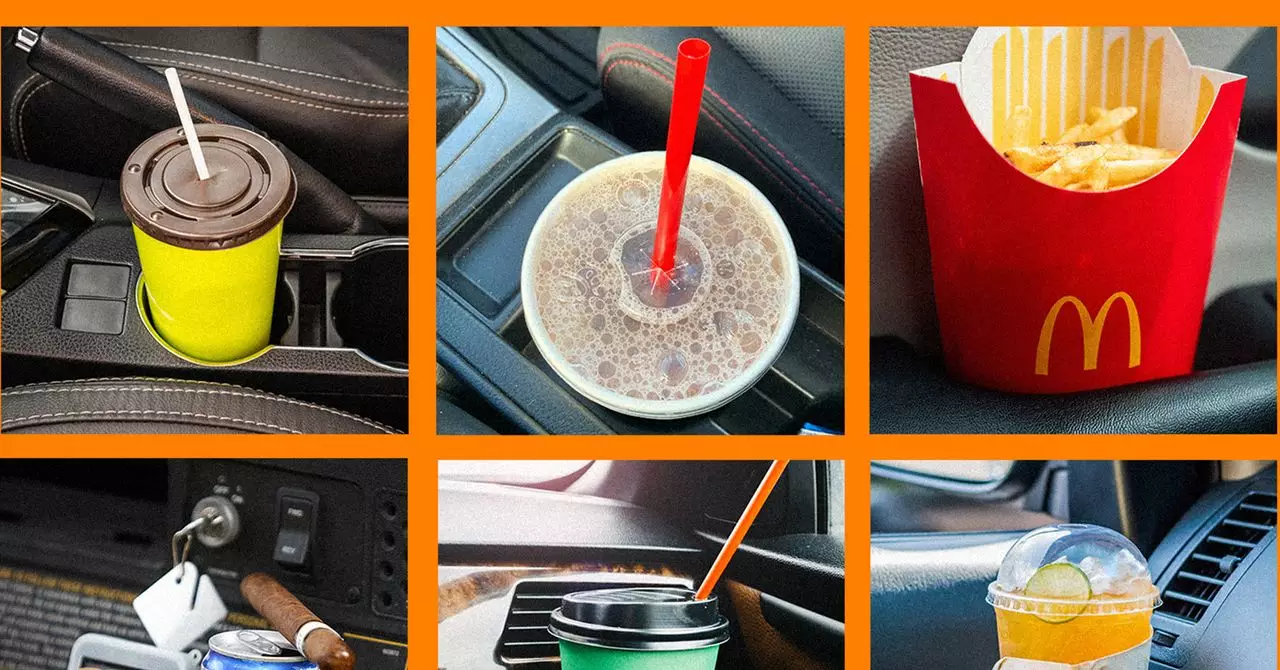In the relentless pursuit of cutting-edge technology and luxury, automakers often overlook the subtle yet profound impact of everyday features—like cup holders—on consumer satisfaction. Recent industry insights reveal that these seemingly minor components wield extraordinary influence over buyers’ loyalty and overall vehicle perception. Contrary to the assumption that high-tech gadgets and flashy interiors are the ultimate markers of a successful car, attention to the mundane—particularly the humble cup holder—can make or break a brand’s reputation.
Automakers keep striving to embed more digital innovations, from advanced driver-assistance systems to ambient lighting, to impress today’s tech-savvy consumers. While these features undoubtedly enhance the driving experience, they often distract from the fundamental human need for simplicity and practicality. The persistent complaints about cup-holder sizing and accessibility underscore a crucial truth: comfort touches are the real foundations of trust and satisfaction. When a basic function like storing a beverage is poorly executed, it creates a ripple of dissatisfaction that overshadows even the most sophisticated tech features.
The importance of these basic comforts is exemplified through the insights of industry engineers like Chris Fischer from Nissan. His team’s focus on improving cup-holder design stems from a recognition that these spaces are essential touchpoints—miniature hubs of daily interaction with the vehicle. When the gap between consumer expectation and actual experience widens, customer frustration burgeons, and brand loyalty diminishes. It’s a sobering reminder that no matter how advanced the vehicle, its success hinges on the fundamental belief that driver and passenger needs are understood—and met.
The Cultural Weight of Simple Comforts in the Automotive World
The significance of cup holders isn’t a mere trivial annoyance—it’s deeply rooted in consumer culture, particularly in regions where large beverages are the norm. In the U.S., the culture of supersized drinks means that oversized containers like Yeti or Stanley cups are standard fare, forcing automakers to rethink the dimensions and placement of beverage storage spaces. The constant demand for bigger and better cup holders highlights a broader human truth: comfort preferences are shaped by lifestyle and cultural habits, not just technological trends.
Despite the proliferation of progress in automotive tech, the persistent focus on cup holder quality suggests that simplicity often reigns supreme in consumer decision-making. A vehicle with advanced autonomous driving features may still be pulls aside if its cup holders fail to hold the large drinks that consumers depend on during long commutes or road trips. This isn’t a nostalgic nostalgia but a pragmatic reality: people want their daily essentials to work seamlessly. When those essentials fall short, frustration can undermine all the futuristic features.
This phenomenon also exposes a paradox in modern automotive design—the competition isn’t solely for innovation but for making familiar, often overlooked features better. This need to perfect the mundane underscores a sophisticated understanding of human behavior: comfort, convenience, and tactile satisfaction are as critical—if not more so—than digital complexity.
The Power of Design – Where Small Changes Spark Big Loyalty
Designing for usability isn’t just about aesthetics; it’s about creating intuitive, reliable experiences that resonate on a personal level. Industry leaders like Seymourpowell emphasize that touchpoints—the first physical contacts consumers have with a vehicle—are decisive factors influencing purchasing decisions. An ergonomic door handle, a well-placed armrest, or a thoughtfully designed cup holder can elevate a mundane task into a source of pleasure.
For manufacturers, this understanding necessitates a shift from prioritizing technological spectacle toward mastering the art of simplicity. Each design adjustment—be it the depth of a cup holder or the friction of a door handle—can significantly influence how a consumer perceives the entire vehicle. Successful brands recognize that these details foster a sense of trust and reliability, nurturing long-term brand allegiance.
In a landscape flooded with options, nothing resonates more powerfully than a vehicle that feels thoughtfully tailored to everyday needs. When automakers invest in refining these small yet impactful features, they differentiate themselves in a competitive market saturated with digital bells and whistles. The narrative is clear: in the quest for innovation, the most enduring appeal derives from understanding and perfecting the little things. These details—often invisible or taken for granted—are, in fact, the true heartbeat of consumer satisfaction.

